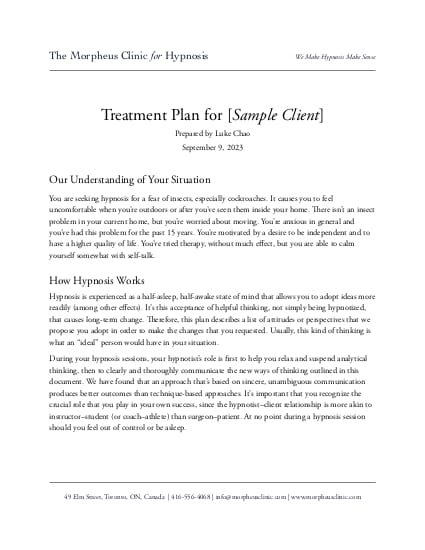![]() The results for me were fantastic. I have turned stress into a tool and not my master. The techniques [you] taught me are now part of a daily mind routine that I do naturally wherever I am.*
The results for me were fantastic. I have turned stress into a tool and not my master. The techniques [you] taught me are now part of a daily mind routine that I do naturally wherever I am.*
![]()
— Glenn C. (Costa Rica)
Are you stressed out? Do you have a hard time “leaving work at work,” and instead carry worries with you for the rest of your day? Do you become frazzled and have difficulty concentrating or achieving clarity? Are you frequently anxious and easily overwhelmed? Is tension causing you to perform at a sub-par level, and do you take your anger and frustrations out on loved ones? Do you feel that you are losing control over your life?
If you answered “yes” to any of these questions, then you are not alone. Millions of Canadians suffer from chronic stress. And as our society becomes increasingly fast-paced with more demands placed on its members, stress levels are rising at an alarming rate.

Three Crucial Areas of Your Life That Are Dramatically Affected by Stress
Stress in the Workplace: It doesn’t matter if you’re a CEO or getting your hands dirty, if you’re in an office or out in the field, if you’re self-employed or part of a major corporation—every job has elements of stress. And the way you conduct yourself during these stressful moments will directly affect how successful you are. Without the ability to properly manage stress, you will not excel in your career—regardless of your knowledge or experience. In addition, the ability to remain calm and rational under pressure is a highly-valued skill in the professional world. By demonstrating that you can be depended upon in any situation, you will have a tremendous advantage over your colleagues and will succeed accordingly.
Stress at Home: Family life isn’t always easy. Aging parents, newborn or very young children, divorce or remarriage, relationships, illness or injuries, pregnancy or bereavement, financial instability, relocation or altered living conditions, or dependents with emotional or behavioural difficulties can all contribute to a stressful home life. By discovering how to maintain a calm demeanour and approach family difficulties with a rational mindset, you will be better able to handle problems that come your way. Additionally, your calmness will be a source of reassurance for others; tension and energy levels in the family will be brought down so that logical decisions can be made and solutions implemented, all while maintaining strong family bonds.
Stress and Your Health: Nearly every chronic illness or condition can be triggered or made worse by stress. These include migraines, irritable bowel syndrome, cold sores, fibromyalgia, chronic stomach or head aches, ulcers, high blood pressure (leading to heart disease, heart attack or stroke) and cancer. Furthermore, stress can lead to unhealthy lifestyle choices such as smoking, excessive drinking or drug use and overeating. It is also related to sudden weight change and an increased rapidity of visible aging. In short, your body reflects your mental state. Reducing stress in your life is an excellent first step towards promoting a healthy lifestyle.
The Secret Behind Stress—And How to Overcome It
Many people believe that the only way to eradicate stress is to remove its cause. If you work in high-stress environment this could mean quitting your job, which is not always an option or necessarily something you even want to do. After all, you have worked hard to achieve your current success level—you don’t want to throw that all away.
Fortunately, you don’t have to. That’s because stress is not an independent entity in and of itself, but rather a way of reacting to a situation. You don’t need to necessarily change what you do in order to change how you feel—you simply need to change how you think. By altering the way you interpret and react to situations, you lower your stress levels and even convert that negative energy into positive motivation. Through hypnosis, you can discover how to manage and diminish stress—quickly and safely.
Scientific Studies Have Demonstrated the Effectiveness of Hypnotherapy for Anxiety
Below, we’ve summarized some of the scientific research on how hypnosis can help with anxiety.
“The average participant receiving hypnosis showed more improvement than about 79% of control participants […] The average participant treated with hypnosis achieved more anxiety reduction than about 84% of control participants. […] All in all, the results of the current meta-analysis suggest hypnosis may be comparable in effectiveness to CBT, PMR, and psychodynamic psychotherapy in treating various anxiety problems, and possibly more effective than mindfulness.”
International Journal of Clinical and Experimental Hypnosis, published 2019
“In a trial study consisting of 3 groups, the control, hypnosis, and attention control groups were compared and it was reported that post-intervention anxiety was significantly lower in the hypnosis group. […] A clinical trial was conducted among 150 women who underwent minor breast surgery and reported that hypnosis reduced postoperative anxiety and fatigue score compared to the control group.”
Frontiers in Public Health, published 2022
How Hypnosis Targets Stress in Your Unconscious Mind
We all have a conscious mind and a unconscious mind. Our conscious mind is responsible for the thoughts we have that we are aware of, such as formulating a strategy when playing chess or deciding what to cook for dinner. Our unconscious mind, on the other hand, thinks on a deeper level and is in charge of our respiratory system, circulatory system, immune system and other automatic processes. Both parts of our mind observe, absorb and formulate opinions and beliefs based on our knowledge and experiences. However, our conscious mind does this using rational logic, whereas our unconscious operates through emotions. Furthermore, we are aware of the ideas in our conscious mind but unable to access the beliefs of our unconscious. Stress builds up through the thoughts and reactions governed by our unconscious—this is why it is impossible to shake feelings of anxiety even if you are able to rationalize the issues that surround them.
Hypnosis speaks to your unconscious mind by relaxing the conscious mind out of the way. From there, it is possible to uncover the roots of stress. Using motivational suggestions, your hypnotherapist will suggest new ways of looking at and reacting to these triggers—not to cease them from causing stress, but to harness that energy for ambition and productivity.
Four Ways Hypnosis Can Help You Fight Stress

You will discover exactly what the stress triggers are in your life. For example: if you find yourself becoming stressed at work, hypnosis can help you pinpoint exactly which elements of your job are difficult to cope with. The answers may surprise you!

You will internalize some of the attitudes and perspectives that allow some of your more even-keeled peers cope effectively with the same stressful situations that you’re in.

You will be shown simple yet extremely potent relaxation tactics that you can use at any time, in any place, to combat stress immediately.

Each session will induce a state of extreme relaxation that will leave you feeling clear-headed, peaceful and re-energized for hours, days or even weeks.
Is Hypnosis Right for You? If You’re Serious About Beating Stress, Take the Next Step Forward
The next step is to call us at 416-556-4068 (in Toronto) or 1-888-HYPNO-24 (toll-free in the U.S. and Canada) to schedule a free initial consultation online through video conferencing or at our office in downtown Toronto. This one-hour meeting allows us to figure out how we can help you, and it lets you understand our practices and principles a little better, so that you can make an informed decision.
If scheduling is difficult for you, completing our self-directed consultation and requesting a custom treatment plan is another way to start.
Otherwise, complete the form below and we’ll get back to you with our next availabilities.
This consultation is for discussing private, individualized care. For a low-cost option, we host regularly scheduled group hypnosis sessions. Click here for more information.
Disclaimer
* The ideal results described on this site, including testimonials, represent the outcome of an ideal client. Your results might be different, and will depend on your hypnotic suggestibility, motivation to change, past history, and many other factors that are not in our control. In addition, our work as hypnotherapists is not medical care, psychotherapy or psychological advice.

